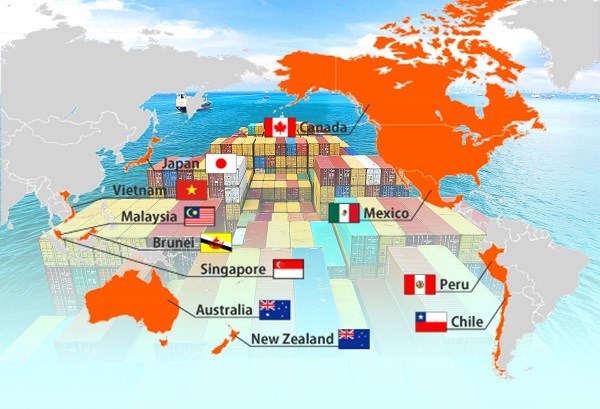Vietnam’s core interests still ensured with CTPPP membership
Thứ Hai, 05/11/2018, 21:12
Vietnam’s core interests will still be ensured after the country joins the Comprehensive and Progressive Agreement for Trans-Pacific Partnership (CPTPP), Deputy Prime Minister and Foreign Minister Pham Binh Minh told the National Assembly on November 5.
- NA deputies to continue discussing CPTPP ratification on Nov. 5
- CPTPP – opportunity for Vietnam to join global value chain
- CPTPP submitted to National Assembly
- Vietnamese firms advised to be prepared to tap opportunities from CPTPP
- CPTPP likely to be approved in mid-November
 |
|
Vietnam’s core interests will still be ensured after the country joins the Comprehensive and Progressive Agreement for Trans-Pacific Partnership (CPTPP).(Source: VNA) |
The Deputy PM made the affirmation when explaining the pact and related documents to the legislature during the debate of lawmakers.
The Government’s assessment report said joining the pact as one of the found members demonstrates Vietnam’s policy on international integration and affirms the country’s important geo-political position in the region and the international arena.Economically, CPTPP can boost Vietnam’s GDP and export by 1.32 percent and 4.04 percent, respectively by 2035. In terms of investment, CPTPP commitments relating to services and investment are expected to have positive effects on the investment environment. The pact will also help push the process to complete economic institutions. Socially, the pact will contribute to job generation, enhancement of incomes and poverty reduction.
Most NA deputies approved the necessity to ratify the CPTPP, stressing that it is a new generation free trade agreement with high quality and the highest level of commitment so far.
At the same time, many deputies also cautioned about possible challenges and difficulties that will come with the CPTPP. Bilateral and multilateral trade may face difficulties. Several sectors such as advertisement and logistics are expected to face fierce competition. However, the competition also forces domestic enterprises to reduce operation costs.
The deputies said a number of domestic enterprises could fall into difficulties due to increasing competition after the CPTPP takes force, resulting in loss of jobs.
They noted that the country will have to adjust and revise legal regulations on trade, customs, intellectual property and labour to comply with CPTPP commitments.
“At this point, we don’t need to spend much time on discussing whether we should or should not join the CPTPP. The most important thing now is to make clear what we should do to make use of advantages and opportunities brought by the pact while minimising its adverse impacts on domestic production and business,” said deputy Hoang Van Cuong of Hanoi.
Speaking on the sidelines of the debate, many deputies wanted the Government to do more research on the impacts of the deal on Vietnam.
They also urged the Government to take the initiative in reviewing and adjusting related laws to ensure the effective implementation of the CPTPP and prevent risks to the most, while maintaining national sovereignty and avoiding becoming dependence on others.
VNA

